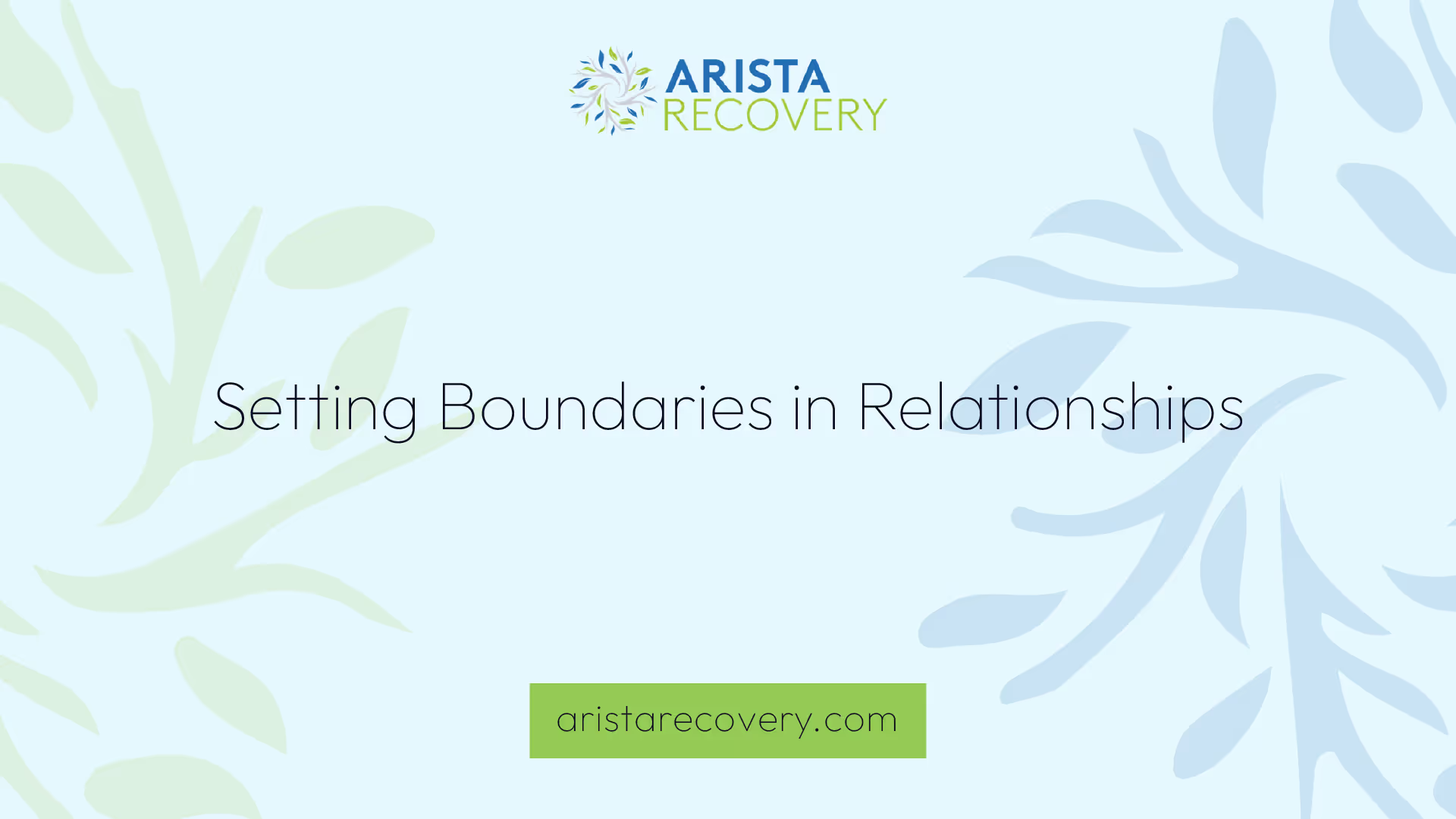
Healthy relationships thrive on mutual respect, open communication, and a clear understanding of personal boundaries. This holds particularly true for individuals on the path of recovery, where maintaining boundaries can be essential for sustained progress. In this blog post, we’ll delve into the significance of setting boundaries in relationships, especially during the recovery journey, and provide valuable insights to help you establish and maintain these boundaries effectively.
Arista Recovery is a full continuum addiction treatment center in the Midwest. Contact us today to learn more about our Kansas City inpatient drug rehab.

Setting Boundaries During the Recovery Process
Our goal is to help people and families affected by substance abuse and co-occurring mental health problems heal, find hope, and receive support with dignity. With our holistic approach, we offer a best-in-class integrated model of care that treats the whole person.
Defining Personal Boundaries
- Identify Your Needs: Before setting boundaries, take the time to identify your needs, preferences, and limits. Recognize what makes you feel comfortable and what aspects of your well-being you want to safeguard.
- Recognize Red Flags: Reflect on past experiences where boundaries were crossed or ignored. Recognizing these red flags can help you establish boundaries that protect your emotional and mental health.
Communicating Openly
- Be Clear and Direct: When setting boundaries, communicate your needs clearly and directly. Avoid ambiguity, as it can lead to misunderstandings. Use “I” statements to express your feelings and preferences.
- Choose the Right Time: Select a time when both you and your partner are relaxed and receptive. Avoid discussing boundaries during moments of conflict or tension.
Be Consistent
- Stick to Your Boundaries: Consistency is key. If you set a boundary, make sure to adhere to it. This shows that your boundaries are not negotiable and reinforces the importance of respecting them.
- Positive Reinforcement: When your boundaries are respected, acknowledge and appreciate your partner’s understanding. Positive reinforcement encourages a healthy cycle of boundary respect.
Consider Mutual Boundaries
- Discuss Boundaries Together: Engage in an open conversation about boundaries with your partner. Identify mutual boundaries that ensure both parties feel respected and valued.
- Compromise: In cases where boundaries differ, find common ground through compromise. Both partners’ needs should be considered to maintain balance.
Reevaluate as Needed
- Growth and Change: As you progress in your recovery and relationship, your boundaries may evolve. Regularly reevaluate your boundaries to ensure they align with your current needs and circumstances.
- Effective Communication: If adjustments are required, communicate these changes openly and discuss them with your partner. Transparency promotes understanding.
Arista Recovery Can Offer Addiction Treatment & Codependency Treatment
Setting boundaries in relationships is an essential practice for nurturing respect, trust, and emotional well-being. Establishing clear boundaries becomes even more critical during the recovery journey to safeguard your progress and maintain a healthy support system. By defining your personal boundaries, communicating openly, being consistent, considering mutual boundaries, and remaining adaptable, you create a foundation of respect that enhances your relationship and sustains your recovery. At Arista Recovery, we recognize the significance of balanced relationships and offer guidance to ensure your well-being remains a top priority. Embrace the power of boundaries as you navigate the intricacies of both recovery and meaningful connections.
When mental health challenges and addiction intersect, it can feel isolating. At Arista, we offer compassionate, evidence-based, and trauma-informed care to help you heal, grow, and move forward.
Setting Boundaries in Relationships
You’re not alone in this.
When mental health challenges and addiction intersect, it can feel isolating. At Arista, we offer compassionate, evidence-based, and trauma-informed care to help you heal, grow, and move forward.
Support that moves with you.
You’ve taken a brave first step. At Arista Recovery, we’re here to help you continue with best-in-class care designed for long-term healing and support.
.webp)






